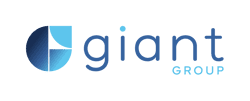There’s something oddly useful about disruption. It forces everyone to stop pretending the old way was working.
With the UK government now tightening its grip on umbrella regulation, agencies might be bracing for these conversations with their clients. But some are already preparing to lead them — and finding new ground to build stronger partnerships in the process.
Because what looks like compliance noise on the surface is actually a golden moment to shift your standing with end hirers — from simply finding the right candidates to becoming a trusted source of ongoing support and partnership.
Here’s the truth: many end-hirers still don’t understand the details of how umbrella arrangements work. They know it’s complicated. They know it’s outsourced. What they don’t always know is how exposed they are — reputationally, financially, operationally — if corners are cut.
That’s where opportunity begins.
And this is where agencies can start bringing clarity. Not in a preachy, jargon-filled way, but in the way that says: ‘we’ve got this, and here’s how we make sure you do too’.
So, what does that actually look like in practice?
You can help your client focus on what matters — not with panic but with precision. If they’re unsure what to check, you can guide them. If they’ve been left in the dark, this is your chance to help them see what good looks like.
These are the kinds of practical conversations that can start to reposition you from supplier to guiding partner.
Key Umbrella Compliance Questions and How Agencies Can Support Clients
Five core areas your clients should understand and where your input makes all the difference:

- Who’s really paying the worker?
Confirm that the umbrella’s PAYE operation is legitimate and compliant in all respects. Help clients see why that matters. Poor visibility here can lead to unintended exposure to tax avoidance schemes or financial instability in the supply chain.
- Are Key Information Documents being issued?
These are a legal requirement for the agency to provide. Support clients by helping them understand what a complete and accurate KID includes and why it matters that it reflects what’s actually happening. Consistency across documents, suppliers and communication builds trust and reduces compliance gaps.
- Do clients know who’s in the supply chain and why it matters?
The agency owns the PSL, but clients still benefit from understanding how and why certain umbrella partners are being used. Confidence comes from knowing who is involved and that proper due diligence has been done. It’s about visibility, not liability.
- Could you stand behind your process and help them feel confident in it?
Clients won’t be audited under this regulation where an agency is in place. But they still have a reputational stake. Helping them understand what good looks like by sharing your auditing processes – and how your decisions stand up to scrutiny – builds assurance without shifting responsibility.
- Are they asking you just to fill roles or to help them get it right?
This is where you demonstrate value. Not just in whom you place but in the confidence you give their business. Build a deeper relationship. When there’s a face behind the process, transparency becomes easier and risk much harder to ignore.
This isn’t just a checklist. It’s a conversation many clients didn’t know they needed until the right agency helped them have it.
Regulation might have kicked the door open. But what happens next — and the kind of relationship that follows — depends on how you may choose to move.
If you're exploring how to approach these conversations with clarity and confidence, Giant is here to support you.


